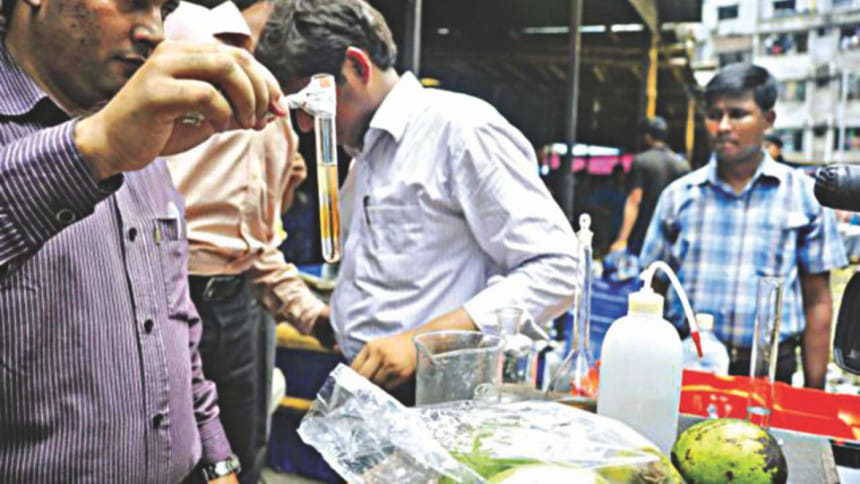Mobile courts can make a difference

I was informed one morning that Takia road, a local wholesale market in Feni, was flooded with palm and super edible oil labelled under the name of soybean oil. I was on duty to conduct a mobile court in that area. While I started preparing for the court, I was thinking about the nature of the problem and finding possible ways to confront it effectively. I was weighing possible options that could be chosen by the state to solve such crimes and protect the rights of the consumers.
The reason local wholesalers and retailers are involved in such fraudulent practices is simple economics. Palm oil is much less costlier than soy bean oil, and thus selling it in the name of soy bean (which is what consumers demand) is simply more profitable. But such deception is also a criminal act. I was part of the state's check and balance mechanism to curb and control such crimes, and was asked to act on behalf of the state. A few questions instantly struck my mind: Why are buyers accepting this? Which state agencies are responsible to check such fraud? How do I fit into the situation? What is the best possible solution to such everyday problems?
The public usually expects such criminal activity to go unobstructed because of a long held perception that the concerned state-agencies and departments are fully aware of the criminal activity and yet they don't bother to do anything about it. This inaction from the state's part is tantamount to an unofficial approval to this crime. Thus, in the eyes of the public, complaints against such fraud have little chance of being registered.
While this might not be the case at all, perception of this kind is not hard to find among common people. As a result, buyers might not turn to the agencies because of their assumption that they will be refused. The government is certainly working hard to alter this apparently popular perception. But how is the government doing this?
State agencies involved in intervening in such cases include the district administration, police department, Rapid Action Battalion, the consumer protection department, etc. Police can register a complaint as a criminal offence, and take the accused to the appropriate courts under the session and district judge or under the courts of chief judicial or metropolitan magistrate. This is the general system of the state providing judicial services to the people. Two things currently limit the effectiveness of this system. On the one hand is the huge pile-up of cases in these courts which make the system slow to act, and on the other, an inadequate number of police personnel constrain them to act promptly.
Another form of limited criminal judicial service is the mobile court which can more than compensate for these two limitations of the general system. With a growing popularity among the people, these courts provide instantaneous, rapid and effective solutions to various forms of social crimes. But how does it do so? How does it add value to the system? Unlike mainstream judicial services, mobile courts move to the place of occurrence with a complete remedial package such as the magistrate, prosecution, police, etc. The accused, subject to the confession of guilt, can be brought to justice within a few hours.
Executive magistrates with a limited penalty power under the Mobile Courts Act, 2009, offer three major components (complaint filing and prosecution, cognisance and trial) of bringing a criminal case to justice within a single unit under the framework of the mobile court and it all happens in an astonishingly short period of time - maybe an hour or two. This greatly revolutionises the quality of judicial services within a limited scale. And it makes everyone better off - the judges of the criminal judiciary who are overburdened with cases, the police, and most importantly the people.
Limitations are inherent in every system and mobile courts are not without them. Considering all the limitations, however, these moving courts can tremendously improve the overall efficiency of the judicial service for social crimes (crimes enlisted in the mobile court schedule) and major crimes like drug related ones on a limited scale. When consumers saw that after dialing my number the super oil container almost disappeared from the market in a matter of a day, they realised that it was possible to get justice against such fraud. Many such consumers might actually be encouraged to lodge such complaints to executive magistrates now.
The writer works as an Assistant Commissioner and Executive Magistrate at DC office in Feni.

 For all latest news, follow The Daily Star's Google News channel.
For all latest news, follow The Daily Star's Google News channel. 







Comments